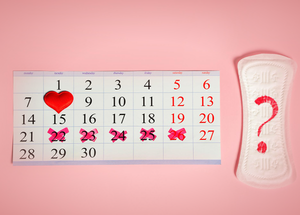“When women understand their cycles, they unlock the wisdom of their bodies.”
Periods are still surrounded by silence, taboos, and misinformation. Reading well-researched, empowering books helps women replace myths with facts, build body confidence, and advocate for their health. From medical insights to personal narratives, these books guide women through the physical, emotional, and social aspects of menstruation.
This book explains the menstrual cycle as a powerful biological rhythm rather than a monthly burden. Hill uses a science-backed yet conversational style to help women optimise productivity, health, and relationships in sync with their cycle.
Although focused on childbirth, this book touches upon menstrual health as a foundation for reproductive well-being. It helps women understand their bodies’ natural processes without fear or shame.
Hendrickson-Jack argues that the menstrual cycle is as important as heart rate or blood pressure in measuring health. She explains how cycle patterns reflect nutrition, lifestyle, and hormonal health.
This book views menstruation through a holistic lens, encouraging women to embrace their cycles as a source of creativity, intuition, and resilience. It blends biology with spirituality in an empowering way.
British journalist Emma Barnett breaks taboos with personal stories and cultural analysis. She challenges the shame around periods and calls for menstrual equality in workplaces and public life.
This book explores how society has shaped the way women experience periods. It mixes humour, history, and activism to highlight why menstrual health matters beyond biology.
This Indian-authored academic work sheds light on menstrual hygiene, especially in rural communities. It is highly relevant for parents, educators, and anyone involved in menstrual awareness campaigns in India.
Myth 1: Periods are dirty.
Fact: Menstrual blood is as clean as regular blood. The stigma is cultural, not biological.
Myth 2: Talking about periods is shameful.
Fact: Open conversations improve health, hygiene, and self-esteem.
Myth 3: Menstrual health is only about pads and tampons.
Fact: It includes emotional health, hormonal balance, nutrition, and social attitudes.
Myth 4: Books on menstruation are only for women.
Fact: Menstrual literacy benefits men, families, and societies too.
Books are powerful tools to break the silence. These seven works remind us that menstrual health is not just about biology, but also about dignity, empowerment, and social change. By reading and sharing them, women can reclaim their cycles as a source of strength and knowledge.
About PeriodSakhi
PeriodSakhi is your trusted companion for understanding your menstrual health. With easy-to-use tools, it helps you track your periods, ovulation, fertility, moods, and symptoms, while providing insights into your overall reproductive and hormonal health. PeriodSakhi also serves as a supportive online community where women can share experiences, find reliable information, and access expert-backed guidance on menstrual health, PCOS, pregnancy, lifestyle, and more.
Disclaimer
The views, thoughts, and opinions expressed in this article/blog are solely those of the author and do not necessarily reflect the views of PeriodSakhi. Any omissions, errors, or inaccuracies are the responsibility of the author. PeriodSakhi assumes no liability or responsibility for any content presented. Always consult a qualified medical professional for specific advice related to menstrual health, fertility, pregnancy, or related conditions.
Start the conversation
No comments yet. Start the conversation by leaving the first comment!





